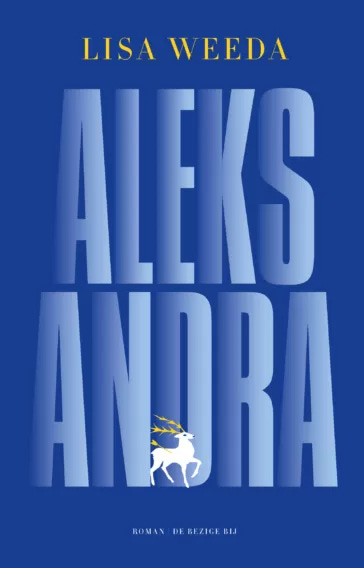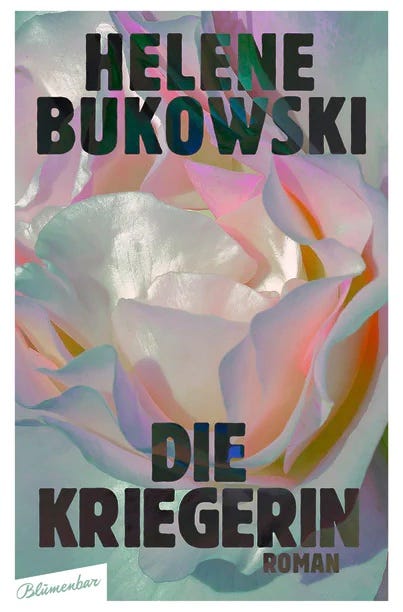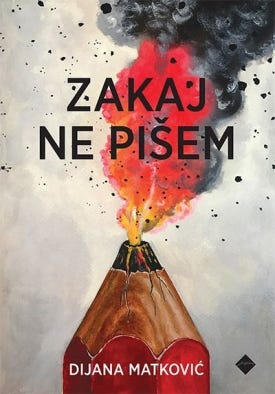Top European IP Found at Books at Berlinale
Breaking down the 11 titles featured at this week's literary bazaar, run in tandem with the Berlin Film Festival




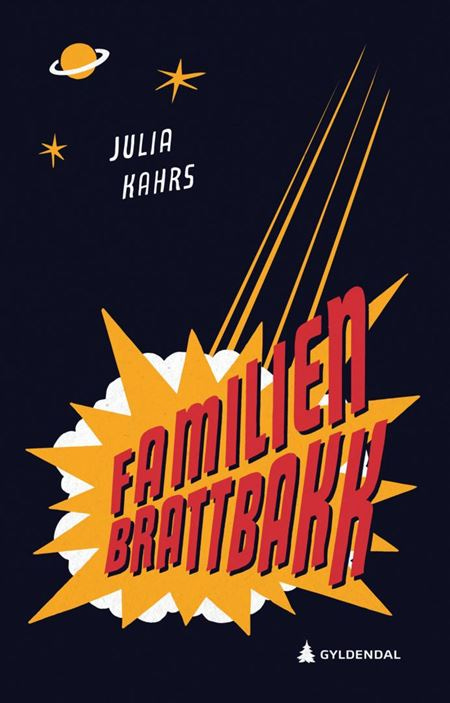

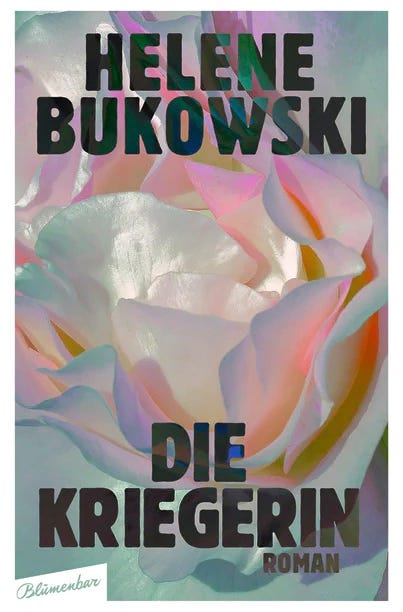


Conceptually, at least, the 16th annual Books at Berlinale marketplace couldn’t be more spot on. The event, which took place earlier this week, is held in the thick of the Berlin Film Festival — with the aim of luring in visiting producers to consider some of the continent’s most adaptable literary wares.
Berlinale is seriously selective — the odd-dozen books that made this year’s cut were culled from a roster of 190 hopefuls. Instead of aimless browsing, the event centers on active salesmanship. Publishers and rights-holders pitch their titles to a room full of potential film and television buyers. The venue — the Berlin House of Representatives — oozes with classical grandeur and is a natural arena for deal making.
I love the idea of mating a book rights marketplace with a film and TV production marketplace. It's an interesting idea I wish similar festivals would consider. However, having covered Books at Bernale for a decade, I remain a fan in theory, and a skeptic in practice.
Too many titles seem to have been chosen more for their literary merit than screen adaptability, and are geared disproportionally to European tastes and non-American buyers (but definitely check out the real-life story below of how the German camera company, Leica, rescued Jews by having them pose as employees. Riveting stuff).
Despite those limitations, Berlinale has featured its share of properties with promising TV or movie viability. Problem is, in most cases, you’d never know it, since the designated pitchmen aren't actually very good at pitching them. It’s often hard to suss out even a basic narrative arc from what they give would-be buyers. Consider the jacket copy for one of this year’s picks:
Dijana Matković's autofiction, essay novel Why I Don't Write with scenes from the author's life, which are strongly intertwined with social and literary reflection, tells about the forces that prevent those from below from existence and creation. … A novel of the moment, a novel of the society of late capitalism of the 21st century, for which Dijana Matković found a language - frank to the point of pain, imbued with analytical doubt and militant in its demand for the truth.
Ugh! Now does this sound at all enticing? Well sure, for some. In a few years’ time, I’d wager that grad students at Heidelberg University and the Sorbonne will be drinking it up in their contemporary lit seminars. But my head hurts just thinking about how to turn that into a logline.
So what I decided to do here is help Berlinale’s organizers out. After a little elbow grease and much poking around, I’ve been able to give the picks the full-on Optionist makeover. My goal is to shine a brighter light on the film or series potential latent in these properties, either in their original settings or transposed to an American landscape.
After all, the internationalization of streaming and the American audience’s growing interest in films and shows from beyond our shores — coupled with the heated market for content — makes a check in at Books at Berlinale worthwhile for anyone looking for fresh IP. So let’s take a look.
Books at Berlinale 2023: The Picks
Here’s a rundown of the 11 books selected for this year's event. FYI: the format is translated title/original title by author (country, year) and then publisher or reps:
LEICA’S LIST
• The Light Behind Us/Das Licht im Rücken by Sandra Lüpkes (Germany, May 2023), Rowohlt Medienagentur
Lüpkes tells a fictionalized history of Leica, the great German camera company, and its controlling family, the Barnacks, from the firm’s founding in 1914. One of the most compelling sections of this business drama focuses on the Leica Freedom Train — a life-saving operation in which the company recast German Jews as Leica employees bound for overseas, smuggling them out of the Reich in plain sight and shipping them to safety in the US.
The heroism of the Leica family under Hitler is even more remarkable when measured against the enthusiastic collaboration of companies like Hugo Boss (outfitter to the SS) and BMW (designer of Nazi fighter planes.)
This saga has the sweep of one of those classic grand Hollywood epics that aims to capture the march of great events across the 20th century, as well as the revolutionary impact of photography on the world. Think Yellowstone meets Jobs meets Schindler’s List.
MURDER — HARD-BOILED AND SERVED UP IBERIAN STYLE
• A Relative Good / Un Bien Relativo by Teresa Cardona (Spain, 2022), A.C.E.R. Agencia Literaria
A nun turns up dead near the former royal monastery of El Escorial in Madrid's San Lorenzo neighborhood. Assigned to this gruesome and baffling case are homicide detective lieutenant Karen Blecker and her partner, Brigadier Cano — who inevitably get sucked into the dark underbelly of wealthy Madrid. Their investigation also takes them back in time to the go-go eighties when the city was in the throes of transformation, as they try to figure out why someone would kill a holy do-gooder who had dedicated her life to the building of a new hospital. This detective thriller gives off strong Michael Connelly vibes in a Spanish setting.
GHOSTS IN THE AGE OF PUTIN
• Aleksandra by Lisa Weeda (The Netherlands/Ukraine, 2021), De Bezige Bij
In war-torn Ukraine, a young woman braves landmines and separatist thugs on what may well be a fool’s errand. She’s determined to cross into the Russian puppet state of Luhansk to deliver a family heirloom to her lost uncle, though she has no idea if he’s alive or dead. At the border, she has a fall. When she awakens, she’s surprised to find herself in the depths of a netherworld that bears a strong resemblance to The Palace of The Soviets — a Stalinist ego monument that the dictator never got around to building — and in the company of her deceased great-grandfather. (I can’t help but think of the scene in Deathly Hallows, Part II where Harry meets a dead Dumbledore in a purgatory that looks like a train station.) Wandering through the palace, the ghost and his great granddaughter begin collecting the fragments of their family history, as terribly shattered as their nation itself. A trippy magical realist story — conceived in the crucible of Putinist barbarism that has outraged most of the world.
ONE FAMILY’S BATTLE OF ALGIERS
• The Art of Losing / L’art de Perdre by Alice Zeniter (France, 2017), Editions Flammarion
Here’s another story of a young woman trying to uncover her family’s past. Naima tries to get her father and grandmother to talk about leaving Algeria in 1962, just as the war of independence from France was ending. What she’s seeking is some glimpse of the life her parents once led when they were olive growers in their homeland, and insight into just how they ended up as refugees in the country that colonized their home.
THE PTSD WANDERER
• The Warrior/Die Kriegerin by Helene Bukowski (Germany, 2022), Elisabeth Ruge Agentur
From childhood, Lisabeth has struggled with a tactile, almost Christlike sensitivity. Whenever her skin touches another’s, she absorbs that person’s pain. Seeking anonymity and discipline from without, she joins the army, where she bonds with a fellow recruit named Florentine. All goes fairly well until a male sergeant sexually assaults Lisabeth in the barracks. She abandons the military, gets married, leaves her husband and child then joins a cruise ship as the on-board florist. She tries fleeing ever further from her own trauma and pain, even though they remain her constant traveling companions — until she’s reunited with Florentine, and the two somehow confront their past to find a way forward.
HOME WITHOUT LOVE; LOVE WITHOUT HOME
• These Streets by Luan Goldie (United Kingdom, 2022), Eve White Literary Agency
In this drama about what it means to have, lose and regain your home, Jess, a single mom of two teens (including one with ambitions of going to either Cambridge or Oxford) finds her precarious life fraying when she loses her job and then is ousted from her affordable apartment to clear the way for encroaching urban professionals. She and her kids begin experiencing homelessness at the same time she falls in love with a new man. The novel explores the dark side of gentrification and the devastation of homelessness. It also uplifts with its exploration of love, family and the meaning of home. Think Nomadland in East London.
LEFTOVERS FOR KIDDOS
• The Storm is Coming/Familien Brattbakk by Julia Kahrs (Norway, 2022), Gyldendal Agency
Every time a storm whips through the small Norwegian town of Gorja, local children disappear. Newcomer Sam, her parents and younger brothers can’t get anyone in town to explain what’s happening. Creepy. With another storm on the horizon, Sam rushes to find answers and to protect herself and her brothers in this scary-ish fantasy novel aimed at 8-12-year-old readers. A generous helping of Stephen King-style menace toned down for the elementary school set.
THE LOVELY RIFF-RAFF
• This Is Not Miami by Fernanda Melchor (Mexico, April 2023), Literarische Agentur Michael Gaeb
Melchor’s collection of journalistic essays — the sole Berlinale entry this year written outside Europe — explores the author's hometown of Veracruz, Mexico, from a vantage that would make Jack Kerouac proud. She's particularly interested in people on the margins, the misfits and murderers, and getting the reader to empathize with them despite the flaws of all, and the depredations of most. Her work has been compared to Marlon James' masterful Jamaica-set A Brief History of Seven Killings, a book with a hard-to-adapt narrative that's nevertheless been optioned by HBO.
TRUER GRIT
• Why Can’t I Write/Zakaj Ne Pišem by Dijana Matković (Slovenia, 2022), Mladinska knjiga Založba It’s hard to get a good handle on this exactly, but to me it calls to mind American books about grinding poverty like Hillbilly Elegy or Maid. It's pitched as a critique of late-stage capitalism and the suffering of ordinary Central Europeans oppressed by EU plutocracy. Beyond this bland critique is a very human story about a battle against injustice.
ALEXA — ARE YOU TRYING TO KILL ME?
• Sonny, Inside/Zo Hoog de Zon Stond by Simone Atangana Bekono (The Netherlands, 2022) Singel Uitgeverijen
This spine-tingling techno-thriller finds Sonny, a young artist, trapped in a sentient, sinister house. After returning to her hometown for an ambitious project, Sonny stays with an old school friend at her parents’ high-tech home, which controls everything from cleaning up to supplying fine wine. Over the course of a hot summer, Sonny starts to lose her grip on reality, but when she tries to leave the house won't let her go. I imagine this as part You and part 2001: A Space Odyssey. Or, to riff on today’s headlines, think the ChatGPT house movie.
A MOBSTER IN HER OWN RIGHT
• Virginia Hill by Peter Blaikner (Austria, 2022), Thomas Sessler Verlag
This fictionalized biography — think Joyce Carol Oates’ Blonde — traces the life and mysterious death of the most notorious mobster love interest of all time. (Time called her the "queen of the gangsters' molls" and she herself bragged she was "the goddam best lay in the country.") Virginia Hill, who was born poor in Chicago, became Bugsy Siegel’s girlfriend before moving on to other organized crime figures. Along the way, she got her hands dirty through money laundering and drug smuggling, accumulating a small fortune in the process. In 1950, three years after Bugsy's murder, she fell in love with Austrian ski instructor Hans Hauser during a trip to Sun Valley, broke with the mob and moved to Austria to start a new life. But some years later, just after she tried to blackmail the mob with threats to publish her diaries, she was found dead. Though suicide is the official cause, the timing was almost too ideal from the crime bosses’ standpoint. Dyan Cannon played Hill in a 1974 TV movie biopic, while Annette Benning portrayed her in Warren Beatty's 1991 film Bugsy. There’s definitely room for an updated spin that makes Hill the central figure of her own story and not just sultry eye candy. A feminist mob movie certainly sounds cool to me.
That’s a wrap for today, folks. We’ll see you again Friday for our regular look at the week’s most promising new optionable IP.







